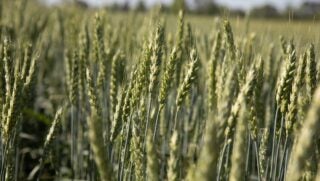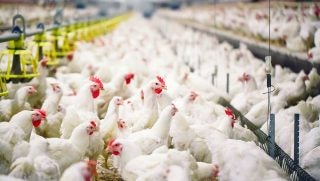With so much aggressive food-label and anti-agricultural advocacy coming from ‘mommy blogs,’ new parents can get steamrolled into making bad food choices
Our family was recently blessed with a new addition: another farmer’s daughter! My brother and sister-in-law welcomed their first child in August. She’s the first grandchild for both sides of the family, so the anticipation and excitement were palpable.
Naturally, Aunt Amanda was looking forward to meeting her, and that first visit didn’t disappoint. I fell in love instantly (I’m told all babies have that power). And I couldn’t get over just how tiny she was (everything other than her scream, of course). Her little nails were barely big enough to see. She just felt so fragile.
It really reminded me of the unique position new parents are in when they first bring home that little bundle of joy. That little baby depends on mom and dad for absolutely everything, including holding its head up! And most parents are keen to do whatever is necessary to make sure the baby has the best start in life.
Unfortunately, new parents are a demographic I think we often miss in agvocacy. Soon-to-be-parents often spend the nine months before the big moment preparing for their little one’s arrival. From classes to self-help books, there’s no shortage of messaging aimed at the evils of modern agriculture. If you want your baby to succeed, new parents are told, there better be certain labels on your food choices.
Sometimes the messaging is hardly subtle. Take the threats of glyphosate coming from momma’s breast milk. The myth started on the pilot episode of a bizarre television in Australia. Notorious anti-agriculture activist Zen Honeycutt supposedly tested breast milk samples on the show. Out of 10 samples, three came back with “high” levels of glyphosate. The implication being that a breastfeeding mom was literally giving her child herbicide for breakfast.
It turns out the entire thing was bunk. There was no control group. The sample size was ridiculously small. It was never peer-reviewed. No sampling data was ever recorded. And there was no measure of actual risk. Further research from other countries found no concerning link. In other words, it was all a ploy to scare young parents into eating a certain way.
The glyphosate-breastmilk story likely gained so much attention due to the herbicide’s fanatical haters. But that’s also how we finally arrived at scientifically conclusive evidence that it was false. What about all the other claims that go unnoticed, unchecked, and unaccounted for?
The answer, in my mind, lies somewhere that some in agriculture loathe to go: the mommy blog.
It’s true that these outlets, when not connected to farming, have been the source of much bad messaging around food. But it can also be the answer, especially when it’s all about a farm family. After all, U.S. agriculture’s greatest story is the generational connection over time.
It’s an opportunity to connect values and messaging. Farm moms care about their kids just as much as any other moms. So if a farm mom is comfortable with the food their farm is producing, that’s a great connection. It’s a powerful message that we shouldn’t dismiss.
But at the end of the day, all of us in agriculture have to do more to reach new parents. As I’ve seen in my own life, this is the time when so many well-intentioned and reasonable people will start to make bad food choices. It’s a demographic we’re missing, and a highly influential one at that.
So let’s find creative ways to reassure new parents with young children. The food coming from US farms — regardless of label — is safe, healthy, and nutritious for all our little ones.
Amanda Zaluckyj blogs under the name The Farmer’s Daughter USA. Her goal is to promote farmers and tackle the misinformation swirling around the U.S. food industry.



